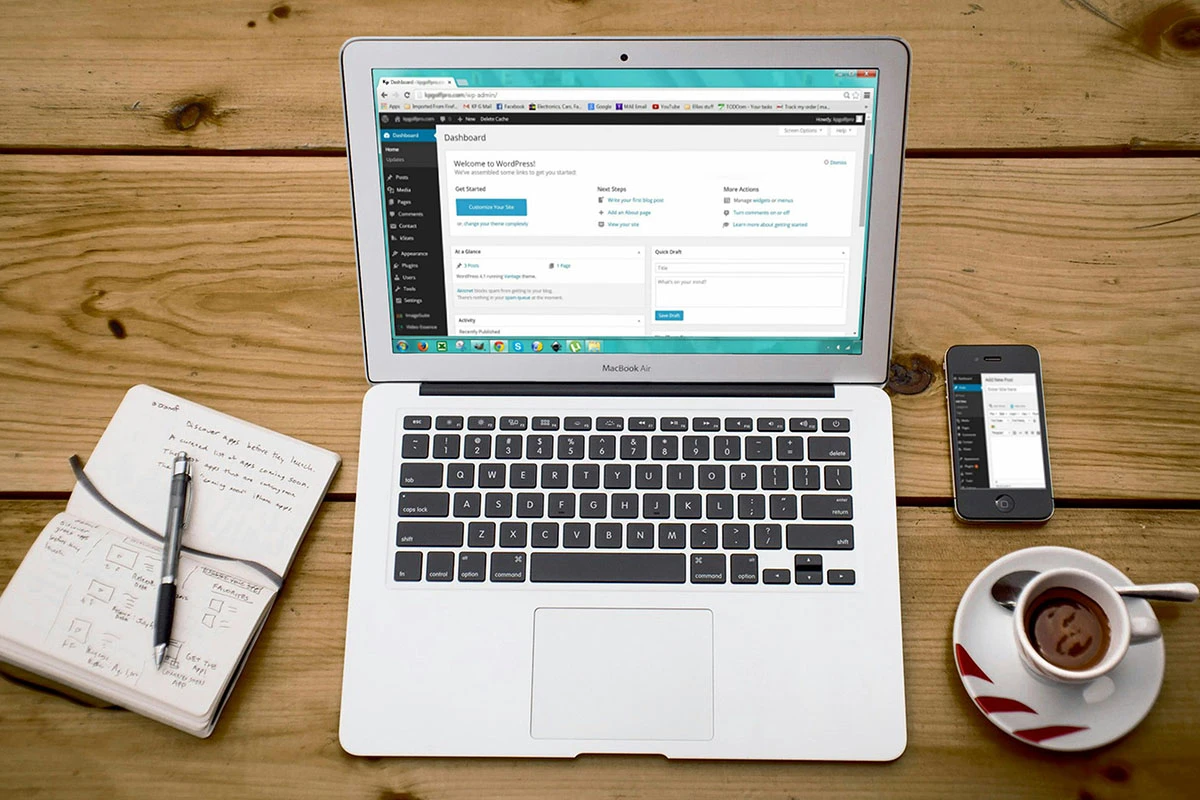When it comes to building websites, WordPress vs Joomla are two of the most popular content management systems (CMS) available. Both offer robust features, but they cater to different user needs. In this article, we’ll compare WordPress and Joomla to help you decide which CMS is the right choice for your next project, with a particular focus on why WordPress might be the better option for most users.
What is WordPress?
WordPress is an open-source CMS that powers over 40% of websites on the internet today. Known for its ease of use, flexibility, and a vast ecosystem of plugins and themes, WordPress is the go-to platform for bloggers, small businesses, and large enterprises alike.
What is Joomla?
Joomla is also an open-source CMS, known for its flexibility and extensive control over site settings. While it’s a powerful tool, Joomla has a steeper learning curve compared to WordPress and is generally favored by developers with more advanced technical skills.
Ease of Use

WordPress: Beginner-Friendly
One of the key reasons WordPress dominates the CMS market is its simplicity and user-friendly interface. Even beginners with no coding experience can set up and manage a WordPress website in minutes.
- Intuitive Dashboard: WordPress offers a clean, intuitive dashboard that makes it easy to manage content, install plugins, and customize themes without needing technical knowledge.
- One-Click Install: Many hosting providers offer one-click WordPress installation, which allows users to get their site running quickly.
Joomla: Steeper Learning Curve
While Joomla offers more control over settings, it is not as user-friendly as WordPress. The dashboard is more complex, and configuring the site requires a bit more technical knowledge.
- Advanced Settings: Joomla gives users more control over content management and layout, but it’s harder for beginners to navigate.
- Installation: Joomla installation isn't as seamless as WordPress and may require additional configuration steps depending on your hosting provider.
Customization and Flexibility
WordPress: Endless Customization with Plugins and Themes
WordPress shines when it comes to customization, thanks to its extensive library of plugins and themes.
- Themes: WordPress offers thousands of free and premium themes, allowing users to change the design of their site in just a few clicks.
- Plugins: With over 60,000 plugins available, you can add virtually any functionality to your WordPress site without coding. Whether you need SEO tools, e-commerce features, or contact forms, there’s a plugin for it.
Joomla: More Built-In Features, Fewer Extensions
Joomla comes with more advanced features out of the box, but its extension library is not as extensive as WordPress.
- Built-In Control: Joomla includes features like multilingual support and user access management by default, which may require plugins on WordPress.
- Extensions: While Joomla also has extensions for added functionality, the options are fewer and can be harder to install and configure.
SEO Capabilities
WordPress: SEO-Friendly
WordPress is well-known for its strong SEO capabilities. Many plugins, like Yoast SEO, make optimizing your content for search engines simple.
- SEO Plugins: Yoast SEO, All in One SEO, and Rank Math are powerful tools that help users with keyword optimization, metadata, and readability, making it easy for beginners to improve their site’s SEO.
- Responsive Themes: Most WordPress themes are mobile-friendly, which is crucial for SEO rankings.
Joomla: SEO-Ready but Complex
Joomla has built-in SEO features, but setting them up can be more complicated than in WordPress.
- Manual SEO Settings: While Joomla has SEO capabilities like URL rewriting and metadata editing, it requires more manual setup and tweaking compared to WordPress plugins.
Security
WordPress: Secure with Regular Updates
WordPress is highly secure, but due to its popularity, it’s a bigger target for hackers. However, WordPress has frequent updates, and there are plenty of security plugins to keep your site safe.
- Security Plugins: Plugins like Wordfence and Sucuri help enhance WordPress security by monitoring your site for vulnerabilities and blocking malicious traffic.
- Regular Updates: WordPress constantly updates its core and plugins to address security issues, keeping your site protected.
Joomla: Strong Security Features
Joomla is known for its strong security settings and access control features, but it’s essential to stay on top of updates to keep your site secure.
- User Access Control: Joomla offers more advanced user access controls, making it ideal for sites with multiple users and permission levels.
- Manual Updates: Similar to WordPress, you must ensure that both the CMS and its extensions are updated to maintain security.
Community and Support: WordPress vs Joomla

WordPress: Vast Community and Resources
With its massive global community, WordPress offers endless resources, tutorials, and forums where users can get help.
- Support: Whether you need help from forums, YouTube tutorials, or dedicated WordPress developers, finding solutions is easy.
- Freelancers and Agencies: Due to its popularity, many freelancers and agencies specialize in WordPress development, making it easy to find professional help.
Joomla: Smaller but Active Community
Joomla also has an active community, but its user base is smaller compared to WordPress, which means fewer resources and third-party support.
Conclusion: WordPress vs Joomla
While Joomla offers some advanced features and flexibility, WordPress is the superior choice for most users, particularly beginners and small business owners. Its ease of use, massive customization options, and strong community support make it the best CMS for creating any website, from blogs to e-commerce stores.
Choosing WordPress means you’ll have access to an ever-growing ecosystem of plugins, themes, and resources that make website management simple, even for non-technical users. If you're still unsure or need help with your WordPress site, feel free to contact me for assistance!
